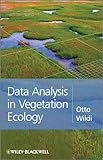Data Analysis in Vegetation Ecology

価格: ¥0
カテゴリ: Kindle版
ブランド: Wiley
Evolving from years of teaching experience by one of the top experts in vegetation ecology, Data Analysis in Vegetation Ecology aims to explain the background and basics of mathematical (mainly multivariate) analysis of vegetation data.
The book lays out the basic operations involved in the analysis, the underlying hypotheses, aims and points of views. It conveys the message that each step in the calculations has a specific, straightforward meaning and that patterns and processes known by ecologists often find their counterpart in mathematical operations and functions. The first chapters introduce the elementary concepts and operations and relate them to real-world phenomena and problems. Later chapters concentrate on combinations of methods to reveal surprising features in data sets. Showing how to find patterns in time series, how to generate simple dynamic models, how to reveal spatial patterns and related occurrence probability maps.